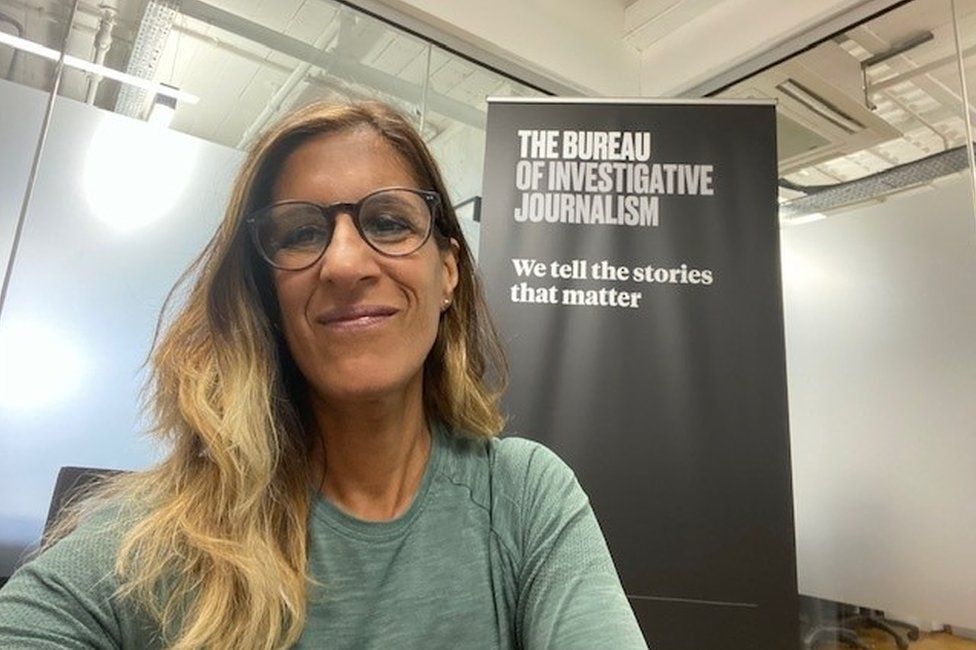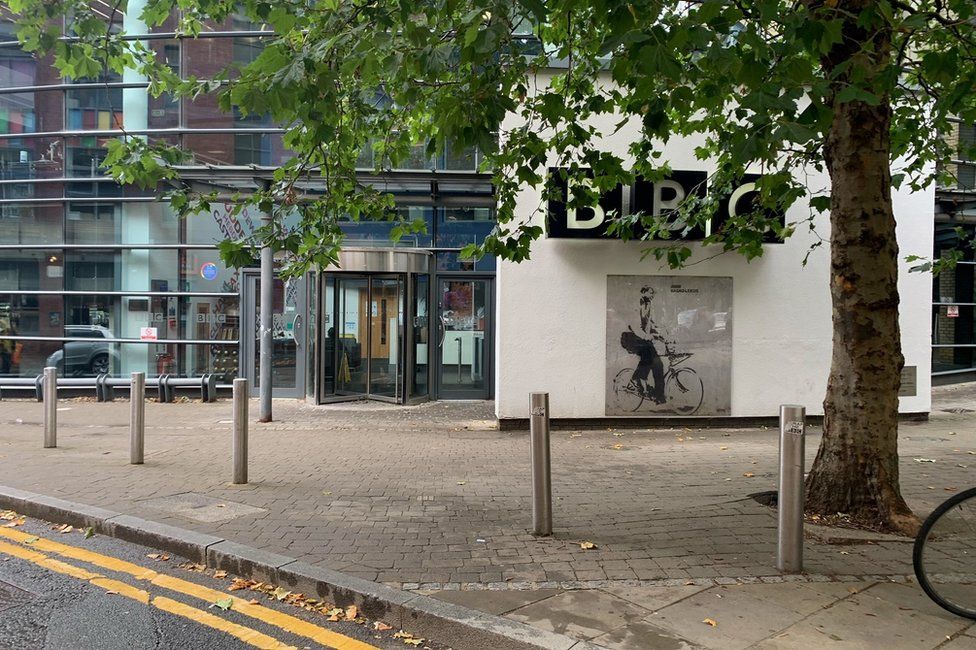The women, who were targeted by former presenter Alex Belfield, are calling for an independent review.
 Image source, PA Media
Image source, PA MediaFemale BBC employees who were harassed online by former radio presenter Alex Belfield have accused the corporation of failing to help them.
The BBC is conducting an internal review “to establish what lessons can be learned”, but the women want an independent investigation or review.
Belfield, from Nottingham, was jailed in September for stalking four men, including presenter Jeremy Vine.
The jury found him not guilty of stalking the four other complainants.
However, the judge made restraining orders in relation to all eight complainants, saying in regard to the women: “Each of them suffered a campaign of harassment by email and social media communications. Each of them suffered serious mental health problems arising from Mr Belfield’s conduct.”
‘Hung out to dry’
The complainants include BBC Radio Leeds presenter Liz Green, who worked with Belfield when he was a presenter at the station.
“We want an independent investigation, without a doubt, because we were left hung out to dry really, for a decade, and whenever I asked for help it never came,” she said.
“I asked repeatedly for help. I was receiving emails, YouTube videos and tweets which were defamatory and damaging. I wanted it to stop and I was told there was nothing that could be done.
“My mental health has been destroyed. I’ve been suicidal. My confidence in what I do and who I am is eroded, and I feel let down by my employer.”

Image source, Kyte Photography
The other complainants seeking an independent investigation are Rozina Breen, who was Belfield’s boss at BBC Radio Leeds, Helen Thomas, who had been Ms Breen’s boss, and Stephanie Hirst, who joined BBC Radio Leeds as a presenter after Belfield left. Only Ms Green and Ms Thomas still work for the BBC.
Ms Breen left the BBC in May and is now CEO and editor-in-chief for The Bureau of Investigative Journalism.
“Although the [not guilty] verdicts of the four Leeds women were devastating, the judge’s sentencing statement was a turning point – it essentially validated what we had all lived through for over a decade,” she said.
“We were BBC employees doing our jobs, targeted because we were in those jobs. At one point in court I was asked by the prosecuting KC what it had been like and I replied that it felt like ‘having a noose around my neck throughout my BBC career’.
“I do believe there were catastrophic failings with regards to us in terms of duty of care and our health and safety and, as such, have asked for an independent review.”

Image source, PA
Belfield started a YouTube channel after he left the BBC and used this to harass his victims, as well as posting messages on social media and sending emails.
The judge, Mr Justice Saini, said that while Belfield did not physically approach or watch his victims his methods were “in many ways much harder to deal with”.
However, Ms Breen said the BBC had not taken the effects of the harassment seriously.
“For the first seven years or so of his trolling, from 2011, we were asked to not look at offensive material, to delete it and/or forward it on, and in one case my boss [Helen Thomas] says she was told to “man up” by a male senior leader,” said Ms Breen.
“At no time did the BBC refute publicly what was being said about us – defamatory, vile and abusive comments, reputationally damaging and mentally exhausting and, at times, debilitating.
“I have written to the BBC saying that there are lessons to learn clearly and that the toxic nature of online hate will only get worse for staff. It’s not enough to leave us to sink or swim, as we had to in this case.”

Image source, Rozina Breen
During the trial Belfield read out what are known as “agreed facts”, which are facts agreed as evidence by the prosecution and defence.
According to these agreed facts, there was an internal BBC investigation in relation to correspondence Ms Green received from Mr Belfield. However, it was decided the monitoring should not continue, because the emails were “inoffensive”, “non-threatening”, and Mr Belfield was deemed to pose “no risk to BBC staff”.
Ms Green believes the BBC’s inaction might have influenced the jury and led to their not guilty verdicts.
“I can only speculate that because it went on for so long, and the BBC did not act to protect us, they [the jurors] thought it cannot have been as bad as it was,” she said.
“The judge clearly recognised what we had endured, and we got restraining orders.”

Also mentioned in the agreed facts was an internal BBC email which said Mr Belfield was deemed to present “no personal danger” to another complainant – BBC Radio Northampton presenter Bernard Spedding – or any other BBC staff.
However, the trial heard that Mr Spedding almost killed himself as a result of Belfield’s harassment.
“He was seconds away from taking his own life as a result of your conduct,” the judge told Belfield in his sentencing remarks.
“You made this highly successful and confident radio presenter lose all joy in life and turned him into a shell.”
‘We want to learn from this’
One of Ms Green’s main concerns is that the BBC has no stalking policy.
“I really do want that to happen,” she said. “Digital stalking, which is what happened here, is increasingly prevalent and very damaging, and I feel there needs to be a strategy in place to protect the individual being stalked.”
The review will be led by Peter Johnston, the BBC’s deputy director of editorial standards.
According to an internal email, the aim is “to provide recommendations to the BBC on how it can best support colleagues facing online stalking or significant social media harassment”.
A statement from the BBC press office said: “We know this has been very difficult for those involved and we continue to provide support to current and former staff.
“We also want to learn from this to ensure we offer the best possible support to all colleagues, who may sadly experience the threat and risks of online stalking in the future.”

Follow BBC East Midlands on Facebook, Twitter, or Instagram. Send your story ideas to eastmidsnews@bbc.co.uk.